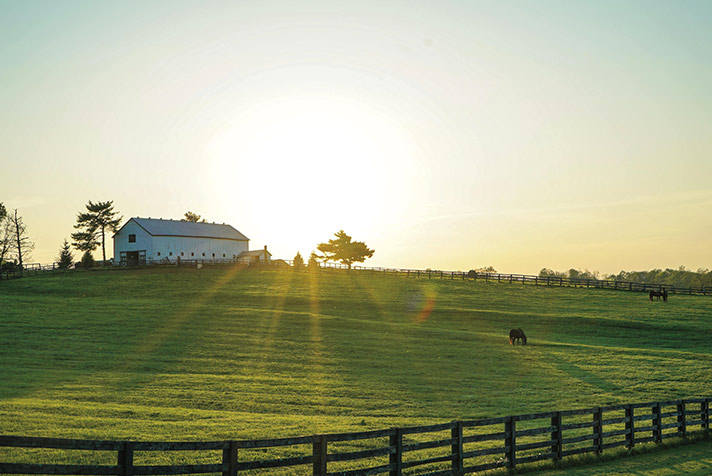On Real Estate & More – November 2024
LIVING IN THE COUNTRY is a dream for many. If you have not purchased or lived on rural property, there are many unique considerations to be aware of. When buying in a city or town, it is generally easier to determine allowed uses of the property, boundaries, and the availability of city water, sewer, and utility services. Purchasing a rural residential property, however, requires you to investigate issues you may have never considered before. It is important to understand what to expect and how to avoid unpleasant surprises so you can more fully enjoy the benefits of rural living.
Real Estate Listing—When you are first looking at a property, you may be drawn to it because of photos or a listing that describes the positive features of the property and the home (if there is one). However, these listing descriptions or photos do not include information regarding the legal or approved uses of the property. The bottom-line is, don’t take everything in the listing description at face value, and do your due diligence.
Preliminary Title Reports—Once your offer is accepted, the title company will issue a preliminary title report with a legal description and encumbrances that might affect the property, such as easements, unpaid taxes, and judgment or contractor liens. Most are standard items that can be resolved through the escrow process, but some, such as a pending lawsuit, or lack of legal access, can be deal breakers unless the seller agrees to resolve the issue prior to closing.
Seller Property Disclosure Statement—Under state law, the sale of residential property must include a Seller Property Disclosure Statement. This document requires the seller to answer multiple questions about what they know about the condition of the property; that includes everything from leaking roofs, title, zoning, septic systems, and boundary disputes. Unfortunately, sellers sometimes fail to fill out the form accurately or do not know much about their property. Whether deliberate or unintended, this misrepresentation can have significant consequences, so it is important to do your due diligence, especially when an “unknown” box is checked.
Inspections—It is in your best interest to have the structures inspected by a qualified home inspector. A listing description for a property might say it is served by a well, but doesn’t mention the water has low flow, or has high arsenic levels, or is shared with a neighbor. Such issues can usually be resolved, for example, using a treatment system or entering into joint use agreement, but needs to be assessed up front. Additionally, it is important to have the septic system inspected to ensure it is properly functioning.
Property Boundaries—Many property disputes revolve around disputed property lines. If there are any red flags about the boundary or potential encroachments, it may be to your benefit to obtain a copy of the last recorded survey from the county surveyor’s office and review it carefully. If no survey exists, you might consider hiring a surveyor to, at minimum, locate the property’s corner points.
Easements—While most easements are recorded with the county recorder, that’s not always the case. Make sure to review all easements noted in a preliminary title report that benefit or burden the property. If there is an easement, establish who is responsible for maintenance. Under Oregon law, if there is no written maintenance agreement, the parties are obligated to contribute to maintenance and repair proportionate to the amount they use or degrade the easement.
Land Use—Many buyers assume that whatever structures or uses of the property that exist on the property are permitted. For example, a property may be advertised as including a house and an accessory dwelling unit (ADU). But the ADU might be a converted outbuilding that was never permitted for residential use.
Property Insurance—There is a growing number of homeowners in Oregon who are facing higher annual premiums or have had their policies canceled when they came up for renewal. It is wise to investigate the cost of insurance on a rural property in the beginning of your process, so you are aware of the cost to insure the structures.
The recommendations provided may seem burdensome, but they can save you money and time, as well as help avoid unnecessary risk. The key to a successful purchase is to ask lots of questions, carefully review relevant documents, do due diligence with planning staff, and retain a knowledgeable real estate agent.

 Sandy J. Brown lives in Jacksonville and is a real estate broker and land use planner with Windermere Van Vleet Jacksonville. She can be reached at sandyjbrown@windermere.com or 831-588-8204.
Sandy J. Brown lives in Jacksonville and is a real estate broker and land use planner with Windermere Van Vleet Jacksonville. She can be reached at sandyjbrown@windermere.com or 831-588-8204.